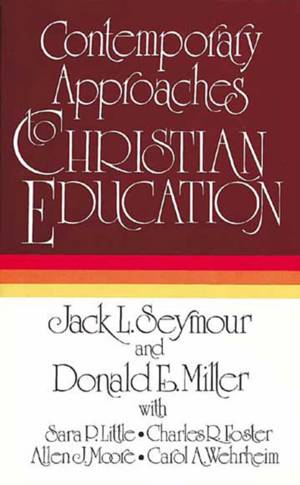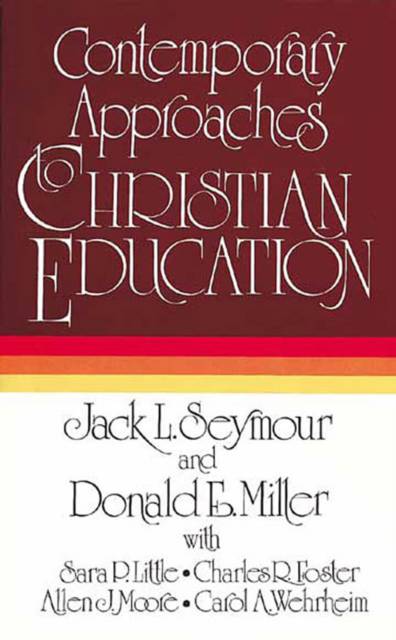
- Afhalen na 1 uur in een winkel met voorraad
- Gratis thuislevering in België vanaf € 30
- Ruim aanbod met 7 miljoen producten
- Afhalen na 1 uur in een winkel met voorraad
- Gratis thuislevering in België vanaf € 30
- Ruim aanbod met 7 miljoen producten
Zoeken
€ 31,95
+ 63 punten
Omschrijving
Seymour and Miller, with four other experts in the field, seek to clarify the agenda, resources, and hopes for Christian education in the twenty-first century. Gone are the days when Christian education was variously envisioned as a school, a home, an educational system, a mission agency, or a school for Christian living. These dreams revealed the conflicts Christian education was to face throughout much of the twentieth century; yet they also clarified its resources and motivated efforts on its behalf. Modern educators such as Seymour and Miller also dream of what Christian education is and what it can become. Here they investigate five approaches through which contemporary Christian educators can develop the theory and practice of Christian education: (1) religious instruction (2) faith community (3) development (4) liberation (5) interpretation. Although they explore these five vital approaches from psychological, philosophical, exegetical, and sociological viewpoints, the authors agree that the central theme is still the teaching of the Good News. It is there we will discover that we are delivered for dependency on the old ways and that we are free to move into new ways of living.
Specificaties
Betrokkenen
- Auteur(s):
- Uitgeverij:
Inhoud
- Aantal bladzijden:
- 176
- Taal:
- Engels
Eigenschappen
- Productcode (EAN):
- 9780687094936
- Verschijningsdatum:
- 1/02/1982
- Uitvoering:
- Paperback
- Formaat:
- Trade paperback (VS)
- Afmetingen:
- 149 mm x 211 mm
- Gewicht:
- 235 g

Alleen bij Standaard Boekhandel
+ 63 punten op je klantenkaart van Standaard Boekhandel
Beoordelingen
We publiceren alleen reviews die voldoen aan de voorwaarden voor reviews. Bekijk onze voorwaarden voor reviews.








